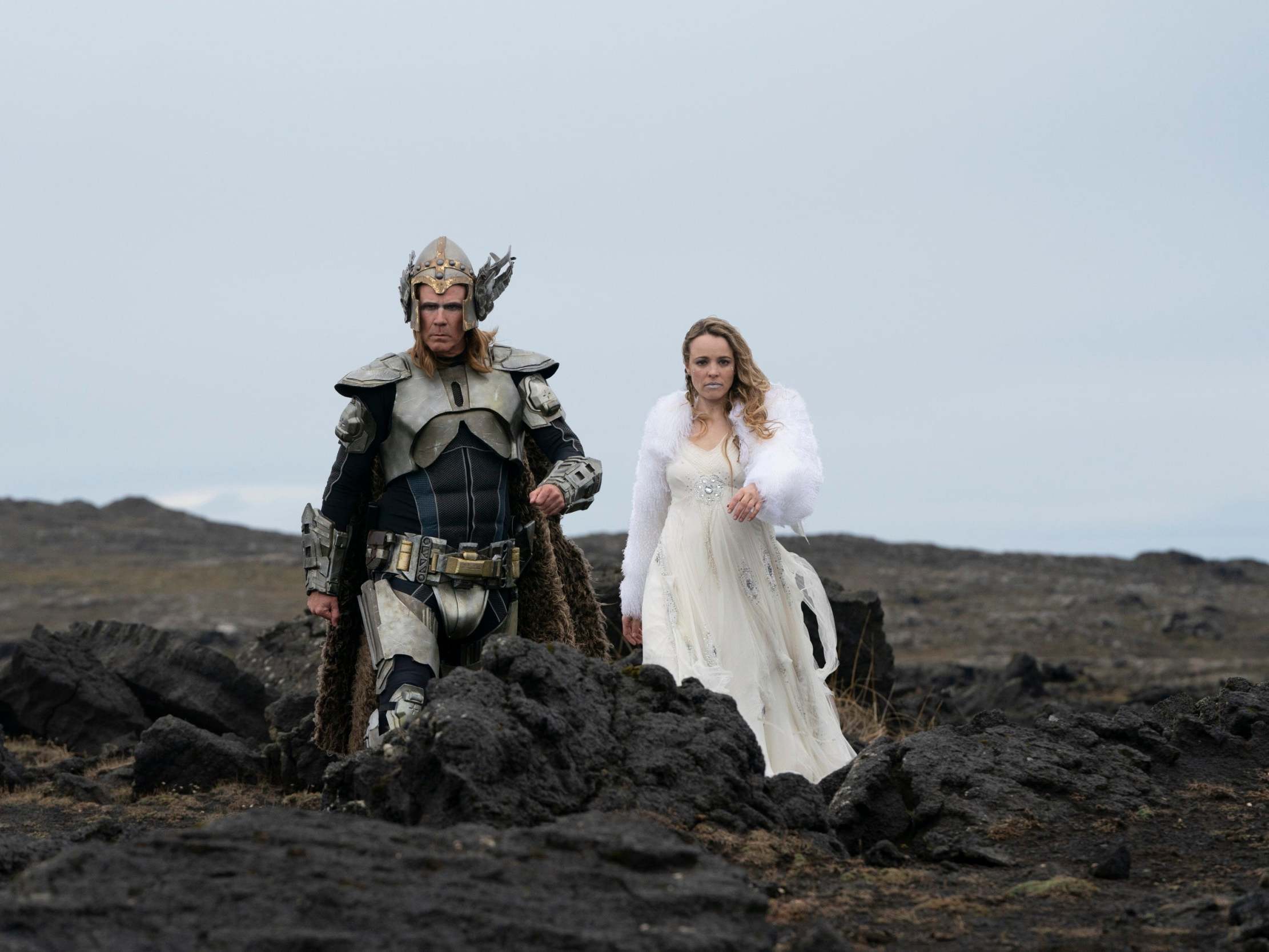Eurovision Song Contest: The Story of Fire Saga – Why Will Ferrell’s film got it right
Will Ferrell, the film’s star and co-writer is a self-professed Eurovision superfan
Eurovision is underway this week, which means it’s about time we revisited the epic film, Eurovision Song Contest: The Story of Fire Saga.
With a star-studded cast including Will Ferrell as co-writer and co-star opposite Rachel McAdams, the movie follows Lars Erickssong and Sigrit Ericksdottir, an Icelandic pop duo determined to win over their small town and represent Iceland at the Eurovision finals.
Yearning for Eurovision success, the pair discovers that the odds are stacked against them. No one in the small town of Husavik has any faith in the musical duo, and Lars’s “extremely handsome father” (Pierce Brosnan) also disapproves of his son’s musical ambitions.
But resilience is key to this story, along with a clear and genuine passion for the Eurovision Song Contest that taps into everything that makes it such a wacky, wonderful event. Within this shimmery, latex-clad story is some truth about the real contest.
Under the direction of Wedding Crashers’ David Dobkin, the film sets Lars and Sigrit off on a musical odyssey that features a number of real-life Eurovision legends. Topped off with a cameo from Graham Norton, who plays himself as a Eurovision commentator for the UK, the humour and heart of the film make it the perfect watch this Eurovision season.
The Story of Fire Saga was born out of Ferrell’s obsession with the competition – he claimed to have been silent for three hours after watching the contest for the first time. “I was just like, ‘What is this thing?’ It’s incredible,” he previously told Screen Rant. “The staging, the kind of costumes, the catchiness of the songs, some of the songs are actually really good.”

He continued: “It was from the sublime to the ridiculous and I just remember in that moment thinking that it would be a great movie but I thought that someone in Europe would have done it.”
The film takes its cues from real-life moments that have unfolded across Eurovision’s storied history. For example, one of the most memorable scenes sees Lars and Sigrit falling off the stage after Sigrit’s scarf is caught in a giant hamster wheel on which Lars is running.
This was a reference to Ukraine’s 2014 Eurovision entry, which featured a huge hamster wheel as Mariya Yaremchuk performed. Unlike Fire Saga, however, Yaremchuk pulled off the performance without suffering any wardrobe malfunctions.
Fire Saga also pays homage to Eurovision greats who have performed in the contest over the years. In the film’s “sing-along” sequence, some of the competition’s best-known winners over the past decade make an appearance, such as Conchita Wurst, Austria’s winner in 2015, and Loreen, Norway’s winner in 2009.
Graham Norton, who has fronted Britain’s coverage since 2009, also has a role in the film, delivering his characteristic savage commentary just as he routinely does during the real-life competitions.
Elsewhere in the film, Sigrit wants to perform the duo’s song in their native language of Icelandic as opposed to English, knowing that to do so would risk losing votes.
This is a challenge many competitors face in Eurovision with an English-language song commonly seen to be an advantage in the contest. Countries have often tried to find their own way around this in the past, sometimes using a lyrical combination of English and their native language.
The Eurovision semi-finals take place on Tuesday 13 May and Thursday 15 May, while the grand final is on Saturday 17 May.
Eurovision Song Contest: The Story of Fire Saga is available on Netflix.
Join our commenting forum
Join thought-provoking conversations, follow other Independent readers and see their replies
Comments
Bookmark popover
Removed from bookmarks